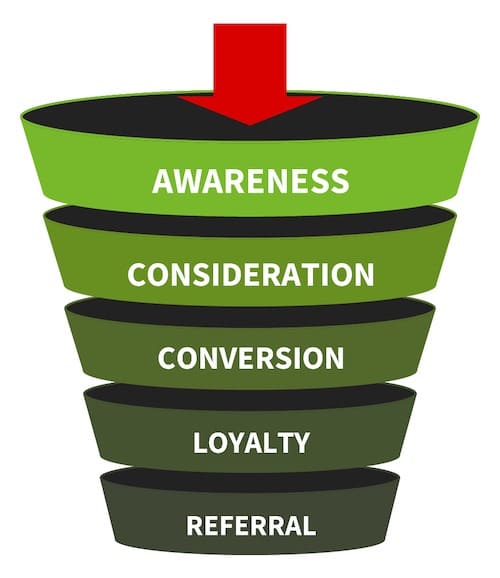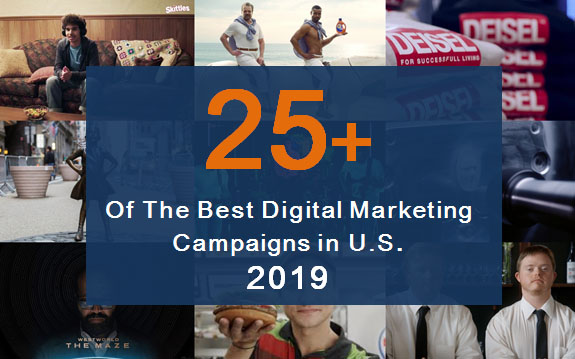How Predictive Analytics Can Improve Your Marketing Performance
Data-Driven Marketing | Aug 21, 2019
It is not a secret that data-driven decisions are now becoming more and more popular among marketers. Knowing the benefits of artificial intelligence in marketing has not only made big corporations but also small and medium-sized companies to start implementing AI-technologies.
However, not everyone knows that AI can help in optimizing the marketing processes in addition to predicting the success of the marketing performance.
In this article, we will dive into the processes of marketing analytics.
You will learn:
- What predictive analytics is.
- What the main benefits of predictive analytics for marketers are.
- How you can apply predictive analytics in marketing.
- What the main stages in the predictive analytics process are.

Photo by Marc-Olivier Jodoin on Unsplash
What Is Predictive Analytics and Why Do Marketers Need It?
Predictive marketing analytics is the set of advanced analytics that uses all the existing data to anticipate future results. Advanced analytics integrates various statistical algorithms and machine learning techniques which allows marketers to determine the likelihood of future outcomes based on historical data.
Therefore, the main objective of predictive analytics is to provide the best assessment of what might happen in the future.
Key Benefits of Predictive Analytics for Marketers
Let us look at the key benefits of using predictive analytics for your marketing campaign.
Predictive analytics algorithms will make it easier to:
- Optimize marketing budget planning.
- Optimize performing CPC-models.
- Improve lead generation.
- Enhance customer intelligence.
- Anticipate Customer Lifetime Value (CLV).
- Customize and personalize your content.
- Predict an increase in churn rate.
As a result, implementing predictive analytics in the marketing processes can significantly optimize the overall marketing performance.
How Exactly Can You Apply Predictive Analytics in Marketing?
Let’s now consider four of the most useful applications of predictive analytics worth noting for marketers.
1. Marketing Campaigns Optimization
This is especially important for the planning processes. Predictive analytics allows businesses to optimize them significantly while eliminating the risk of making mistakes. Indeed, implementing AI algorithms will make the process more precise while also improving the decision-making process.
Predictive analytics examines the models based on historical and transactional data. As a result, the implementation of such AI-technologies makes it possible for a company to identify future risks and opportunities.
2. Opportunity to Predict Customer Behavior
It might sound scary, but modern predictive analytics algorithms make it possible to anticipate the behavior of customers.
Big corporations, such as Amazon and eBay are already using this type of technology. For quite some time, it was hard to imagine these algorithms being of any use to small or medium-sized companies, however, they are now becoming increasingly accessible and more relevant to these smaller companies as well.
Predictive analytics helps you to understand which type of content resonates with a specific audience, as well as which channels are the best for reaching out. Subsequently, after knowing different segment behaviors, content creation and distribution can also be customized.
As a result, it improves the quality of communication, which increases the probability of sales conversion.
3. Leads Prioritization
Generally speaking, predictive analytics algorithms allow marketers to predict which customers are likely to make a purchase and which ones are not. This way, the existing customer database can be classified into specific segments depending on their current position in the marketing funnel.

Image Source: nexoya
After completing the segmentation for each of the user’s personas, different strategies can then be applied.
As a result, it helps to target the right customers at the right moment with the right content. Having this information can make it much easier for sales teams to close more deals.
4. Customer Lifetime Value Prediction (CLV)
Customer Lifetime Value is one of the most important KPIs for the company. It determines how much a client is worth to you during the entire period of your relationship with them.
Thanks to predictive analytics, the CLV of your customers can be predicted as well. Having the historical data for each client allows companies to forecast the approximate duration of their relationship with the client as well as how much revenue that relationship is likely to bring in.
As a result, with predictive analytics, you can anticipate the expected ROI more accurately.
What are the Stages of Predictive Analytics Process?
Usually, the whole prediction process consists of the following stages:
- Setting up the Goal: what do you want to achieve using predictive analytics algorithms.
- Gathering Data: depending on the goal, you will need to collect the data needed for measuring it.
- Analyzing the Data: the process of data analysis and forming the assumptions.
- Analyzing the Statistics: testing the assumptions.
- Model Creation: depending on the goal creation of the prediction.
- Utilization: implementing the results you got into your marketing strategies and tactics – prescriptive analytics.
- Tracking the Model: regular monitoring of the predictive data-driven campaigns.
Conclusion
With the increasing popularity of AI marketing, most of the marketing processes can now be automated. The analytics process is not an exception. The opportunity to anticipate the effectiveness of the marketing performance can help companies to not only plan more efficiently but to also understand their audience better.





